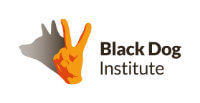This month our featured service is MoodGym, a self-help program designed by staff at the National Institute for Mental Health Research (NIMHR). MoodGym teaches cognitive behaviour therapy skills to help prevent and manage symptoms of depression and anxiety and is a National Safety and Quality Digital Mental Health Standards accredited service.
About MoodGym
MoodGym is a popular and extensively researched interactive program with over 1 million users worldwide. The program provides an anonymous, confidential space for people to learn and practice skills to prevent and manage symptoms of depression and anxiety.
While originally designed to prevent depression in young people, research has shown the MoodGym can also be helpful for people of different age groups and can help people tackle their symptoms. Research has also shown that it can help reduce anxiety symptoms and build resilience.
MoodGym is a highly structured interactive online self-help book, integrating mental health literacy, assessments, self-help strategies and exercises based on cognitive behaviour therapy (CBT). It helps users to identify their particular areas of vulnerability and then explore specific ways to deal with different vulnerabilities, and practice with interactive exercises and diaries.
What does MoodGym offer?
The MoodGym program teaches strategies drawn from CBT to help manage symptoms of depression and anxiety over 5 modules. Each module takes about 30 minutes to complete and concludes with a symptom quiz users can share with a health professional. The 5 modules are:
- Feelings: Why you feel the way you do.
- Thoughts: Changing the way we think to feel better.
- Unwarping: Changing warped thoughts.
- Destressing: Knowing what makes you upset.
- Relationships: Break-ups and how you were raised.
The program also include a workbook of easy access quizzes, exercises and diaries from each of the modules.
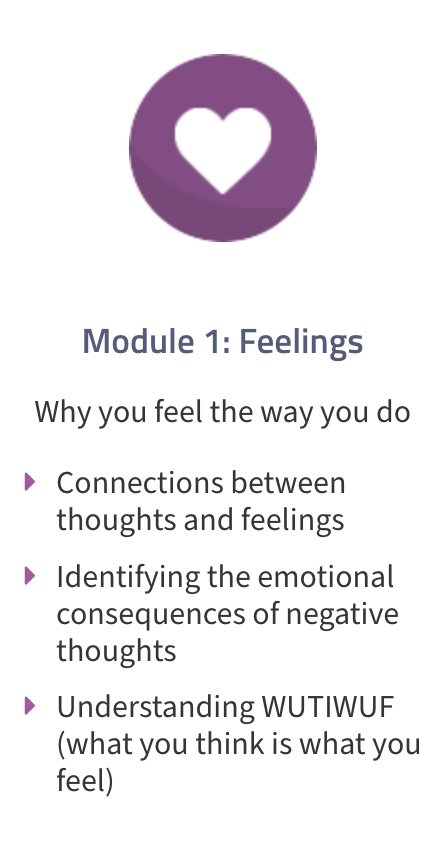
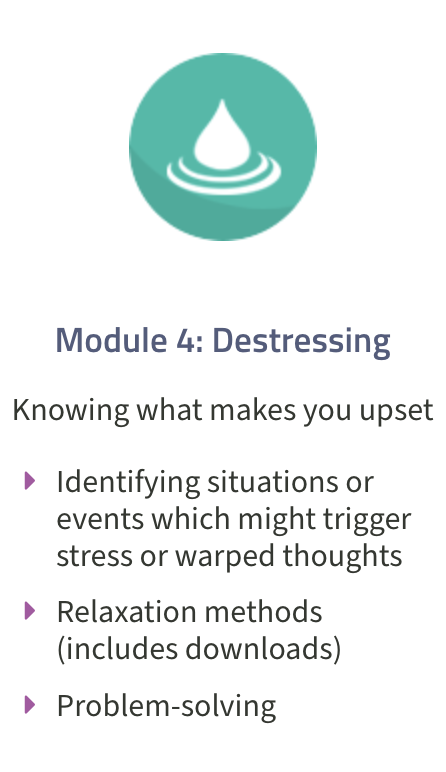
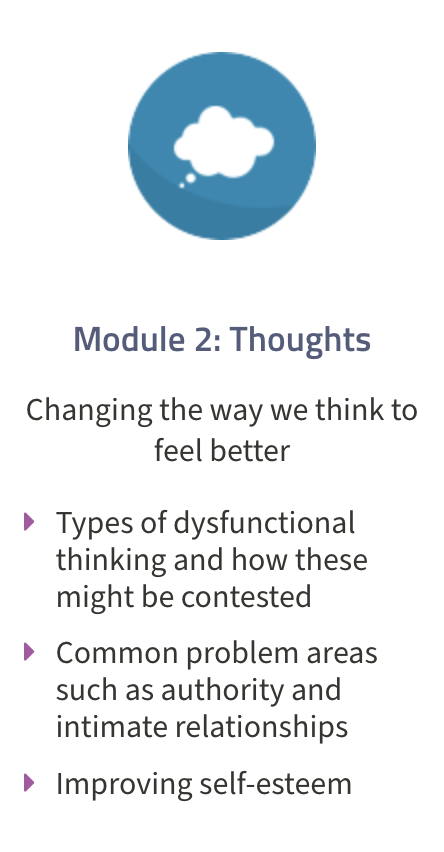
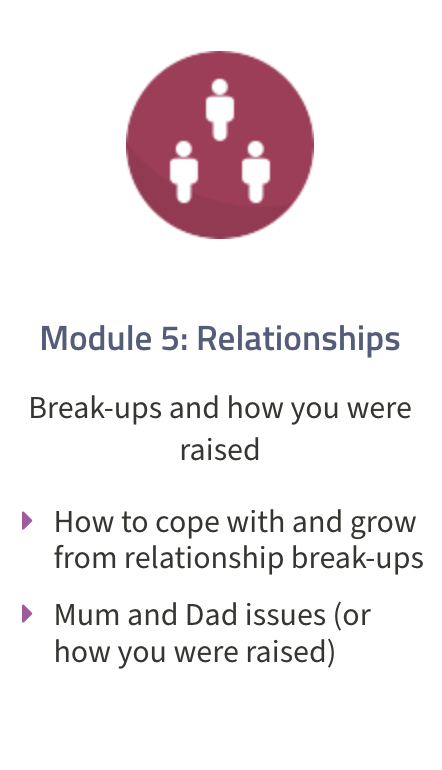
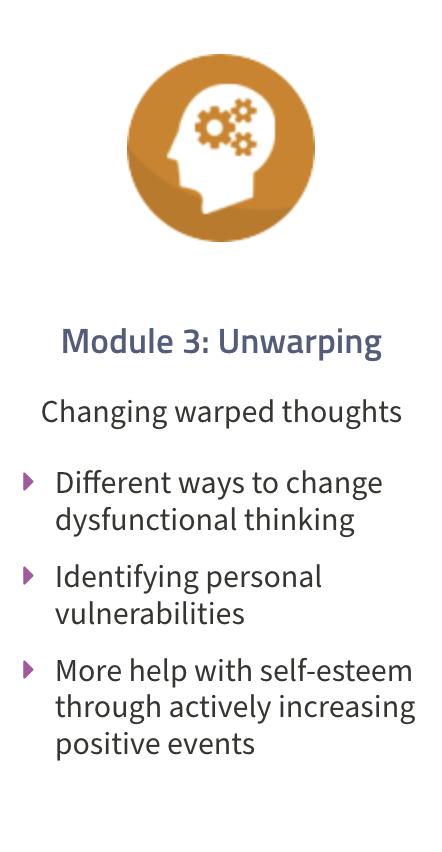
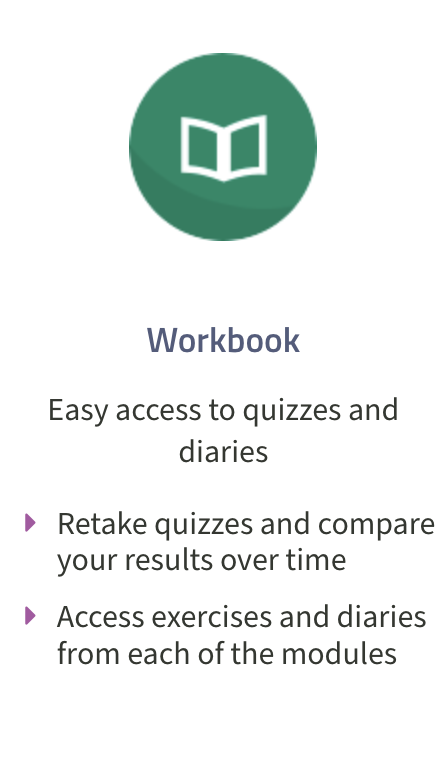
Who is MoodGym for?
How can clinicians use MoodGym?
MoodGym has a manual available for therapists who would like to use the program in their work. At the end of each module users complete symptom quizzes which can be printed out to discuss.
Is there a cost to use MoodGym?
MoodGym is delivered free of charge to all Australians thanks to funding supplied by the Australian Commonwealth Department of Health.
How to access MoodGym
MoodGym is an online program available at https://moodgym.com.au/.
Registration to the program requires users to provide a username, email address, age category, gender, country, rural/remote, education, history of depression, and referral status if referred (eg. by a psychologist or GP).
MoodGym Research and Evaluation
MoodGym has been extensively evaluated in randomised controlled trials (RCTs). It has been shown to be effective in reducing depressive and anxiety symptoms in users in a large number of published research trials undertaken by research groups within and outside of Australia. These include studies:
- In a range of settings (eg. schools, universities, Lifeline, NHS Choice online)
- Across the mental health care spectrum (from prevention to treatment)
- With different age groups (adults and adolescents)
- With a range of population groups (eg. students, primary care patients, community users)
- In different countries
- With and without guidance
Studies have also reported MoodGym to be effective in reducing hazardous alcohol use, and in improving wellbeing and quality of life in users. User satisfaction of MoodGym is high, and evaluation studies suggest that MoodGym is a viable option for those who cannot access face-to-face therapy, and for those waiting for traditional services. There is also demonstrated effectiveness of translating MoodGym, which currently operates in two languages.
For a list of publications and to read more about MoodGym’s research and evidence visit the MoodGym website here.



